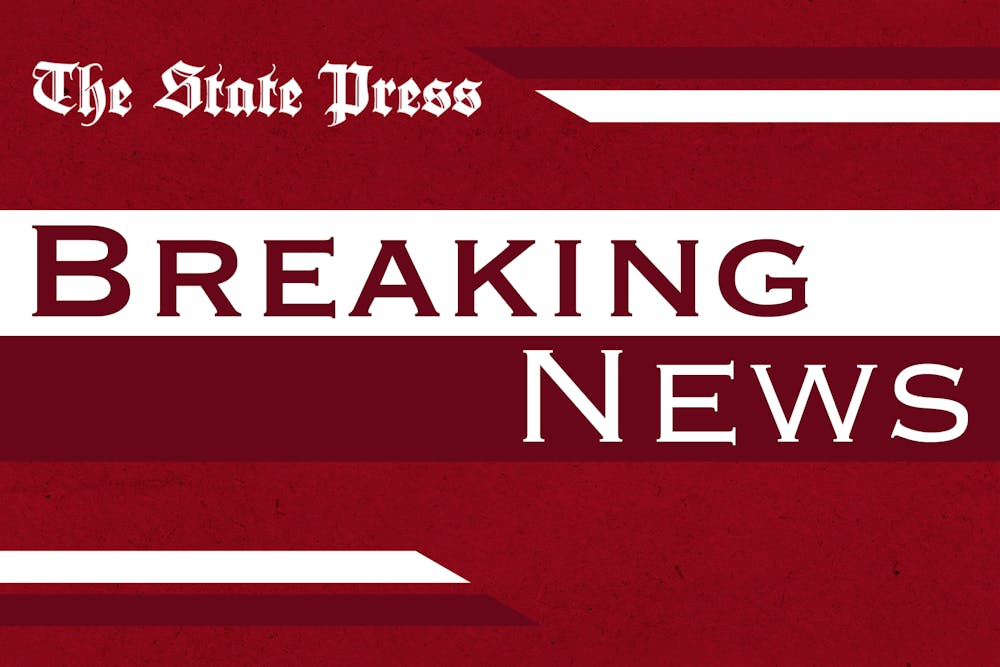The Pima County Superior Court ruled Friday the state of Arizona can again enforce a ban on nearly all abortions, lifting a 1970s injunction that had blocked the ban for almost 50 years. The only exception, according to the ruling, will be for cases in which a pregnant person's life is at risk.
The decision from Judge Kellie Johnson, coming one month after she heard arguments on a request to lift the injunction on the ban, means people seeking abortions will have to go to another state to receive the procedure.
Planned Parenthood Center of Tucson filed suit against Attorney General Mark Brnovich on July 20, 2022, in an attempt to stop Arizona's pre-statehood abortion ban from taking effect after the overturning of Roe v. Wade, the 1973 Supreme Court case that held people have a constitutional right to abortion, this summer.
The law, established over 100 years ago when Arizona was still a territory, criminalizes all abortions unless necessary to save a pregnant person's life, with no exceptions for rape or incest. Planned Parenthood argued lawmakers, including Brnovich, made confusing and inconsistent statements regarding whether the pre-statehood law or other laws enacted by the Legislature after Roe v. Wade would be applicable.
READ MORE: Overturn of Roe v. Wade leaves Arizona abortion policy in limbo
After Roe was overturned, courts and state governments across the nation have had differing reactions and interpretations. In 12 Republican-led states, there are bans on abortion at any point during a pregnancy. Georgia bans abortions after a fetal heartbeat can be detected, health clinics in Wisconsin have stopped providing abortions as the state waits for pre-Roe-related litigation to be decided, and Florida and Utah have bans on abortion that begin before gestation reaches 20 weeks.
The most recent Arizona law passed and signed by Gov. Doug Ducey during the last legislative session would allow doctors to provide abortions until the 15th week of pregnancy, a much more lenient provision than the pre-statehood law. However, it also does not make exceptions for rape and incest.
That law and many others will go into effect Saturday. According to Ducey's spokesperson, the new ban will still go into effect and will be the law despite the Friday ruling.
However, in the ruling, the judge wrote, "modifying the injunction to harmonize laws not in existence when the Complaint was filed ... is procedurally improper."
The governor's office was unresponsive to requests for further clarification.
On Twitter in June, Brnovich said the pre-statehood law was immediately in effect and would not be repealed by the newest law signed by Ducey.
In the lawsuit, Planned Parenthood Arizona disagreed with Brnovich's interpretation of the laws, saying it is "untenable" that the pre-statehood law "— which is over one hundred years old — somehow preempts a host of other subsequently enacted laws and criminalizes nearly all abortions in Arizona, even abortions performed by physicians within the longstanding framework established by the Legislature."
"We applaud the court for upholding the will of the legislature and providing clarity and uniformity on this important issue," Brnovich said in a press release Friday. "I have and will continue to protect the most vulnerable Arizonans."
In a statement posted to social media, Secretary of State and Democratic candidate for governor Katie Hobbs said she was "outraged and devastated" by the ruling and said she has no doubt it will have dire consequences. Hobbs' statement called Arizonans to action, urging those eligible to vote to do so in November.
"Kari Lake's full-throated support of this dangerous law shows how far she is willing to go to take away Arizonans' freedoms and put their health on the line," the statement said. "... As your governor, I will do everything in my power to protect this right — starting by using my pen to block any legislation that compromises the right to choose."
According to data compiled by Planned Parenthood Arizona and other abortion clinics in the state and cited in the lawsuit, 13,273 abortions were provided in Arizona in 2020, with 92.5% of those being conducted prior to 13 weeks gestation.
"Today's ruling by the Pima county superior court has the practical and deplorable result of sending Arizonans back nearly 150 years," said Brittany Fonteno, president and CEO of Planned Parenthood Arizona, in a written statement. "... Let me be clear, this is not the end of the fight, this harmful ban has no place in Arizona and we will persist until that is achieved."
Student clubs were slow to respond to the ruling, which was filed just before 3 p.m. on Friday afternoon.
"Each individual human life is worthy of protection regardless size or level of development. We are happy to see that Arizona officially recognizes this truth," said Students for Life at ASU in an email.
In a written statement, College Republicans at ASU said it was grateful for the impact the ruling will have as the "decision will save thousands of lives." The club said "our goal is not to outlaw elective abortions, it's to end them."
Following the ruling, Arizona's chapter of the American Civil Liberties Union said on social media the ruling was "a devastating decision and marks a dark day in Arizona history" and encouraged "voters to elect those who will do everything within their power to protect abortion access."
The organization has not hinted at an appeal, but one is likely.
This is a developing story and we will update this page as we know more.
Edited by Piper Hansen and Greta Forslund.
Reach the reporter at rpriest2@asu.edu and follow @reaganspriest on Twitter.
Like The State Press on Facebook and follow @statepress on Twitter.

Reagan Priest is a managing editor, overseeing and working with the six digital desks at The State Press. She previously worked as a social justice reporter for Cronkite News and as a digital production intern at The Arizona Republic.




